Kansas Speedway, a 1.5-mile tri-oval speedway located in Kansas City, Kansas, has been a hub for motorsports since 2001. Owned by NASCAR since 2019, the track hosts races from prominent series like NASCAR, IndyCar, and IMSA. Its president is Patrick Warren, and the speedway is conveniently accessible via major highways like I-70, US-24, US-40, and I-435.
January 1999: Kansas Speedway Bond Issuance
In January 1999, after resolving legal disputes with property owners, $95.6 million worth of bonds were sold to finance the construction of Kansas Speedway. This marked the official resumption of the project.
November 1999: Final Budget Announcement
In November 1999, the final budget for Kansas Speedway was announced at $287 million.
March 2000: Kansas Lawmakers Visit and Praise Speedway
In March 2000, Kansas state senators Nancey Harrington and Ben Vidricksen visited Kansas Speedway and commended the project.
2000: Construction Delays and Race Date Uncertainties
In 2000, despite construction having started, delays cast doubt on the Kansas Speedway's opening date. NASCAR officials expressed uncertainty about awarding a Winston Cup Series race weekend to the track, considering new dates allocated in 1997 and 1998.
February 2001: Retail Outlet Development Announcement
In February 2001, plans were revealed for a $236.6 million retail outlet development adjacent to Kansas Speedway. The project, spanning 250 acres, was slated to open in 2002.
2001: NASCAR and IRL Race Weekend Announcements and Ticket Sales
In 2001, NASCAR president Bill France Jr. confirmed a race weekend at Kansas Speedway, while the Indy Racing League (IRL) also announced future races at the track. Ticket sales were initiated, with high demand leading to considerations for capacity expansion.
2002: Planned Opening of Retail Outlet Development
The retail outlet development surrounding Kansas Speedway was scheduled to open in 2002.
2003: Projected Economic Impact of Kansas Speedway
In 2003, the local city sports council estimated that Kansas Speedway would generate $2.28 billion for the local economy by that year.
2004: Casino Proposals and Opposition
Starting in 2004, the Kickapoo tribe and the Sac and Fox Nation proposed constructing a state-regulated casino west of Kansas Speedway. The $210 million project faced strong opposition from various business interests and lobbying groups, who cited concerns about the proposed revenue structure and the potential for corruption.
March 2005: Casino Proposal Stalled
In March 2005, Doug Mays, Speaker of the Kansas House of Representatives, declared the proposal for a state-regulated casino near Kansas Speedway to be effectively dead for the legislative session. This followed heavy opposition from business leaders and lobbyists who argued against the proposed revenue-sharing model and raised concerns about potential government corruption.
2007: Multiple Casino Proposals Submitted
In 2007, Kansas Speedway and Cordish Corporation submitted a proposal for a 500-room hotel and casino project. This proposal was one of seven vying for approval, with competitors including Las Vegas Sands and Pinnacle Entertainment. The Unified Government aimed to review all proposals by the end of the year.
March 2008: Lawsuit Filed Against State-Owned Kansas Lottery
In March 2008, government watchdog group Americans for Prosperity-Kansas filed a lawsuit against the state-owned Kansas Lottery in relation to the casino proposal by Kansas Speedway and Cordish Corporation. The group alleged that the project, which would be funded by revenue bonds or prior tax financing, would "create an illegal tax".
June 2009: Planned Opening of Kansas Speedway Development Delayed
The initial target for the first phase of the Kansas Speedway development was set for June 2009. However, this was postponed to later in the year.
February 2010: Final Approval Granted for Casino Project
In February 2010, the Kansas Racing and Gaming Commission gave the final approval for the casino project by signing off on licensing background checks. This paved the way for the commencement of construction.
March 2010: Track Leadership Transition at Kansas Speedway
In March 2010, Jeff Boerger stepped down as president of Kansas Speedway to focus on leading the development of the Hollywood Casino. Patrick Warren, the track's vice president of marketing and sales, was promoted to oversee the track's operations.
June 2011: First Running of Second NASCAR Cup Series Race at Kansas Speedway
The second NASCAR Cup Series race weekend was added to the schedule in 2010, with the first race taking place in June 2011.
July 8, 2011: Kansas Speedway Announces Track Renovations
On July 8, 2011, Kansas Speedway announced a series of renovations to the track. These included repaving, reconfiguring the oval track, and constructing a new infield road course. Notably, the variable banking was increased from 15 to 20 degrees.
2019: Capacity Reduction at Kansas Speedway
By 2019, the seating capacity of Kansas Speedway had been reduced from 64,000 to 48,000, according to archived records from International Speedway Corporation (ISC).
Mentioned in this timeline

Xfinity a brand of Comcast Corporation launched in provides consumer...
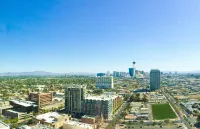
Las Vegas Nevada's most populous city and the seat of...
France officially the French Republic is primarily located in Western...
A lottery is a gambling system where numbers are randomly...

A star is a self-gravitating luminous plasma spheroid The Sun...
Kansas is a Midwestern U S state bordered by Nebraska...
Trending

The Golden Globe Awards are annual accolades recognizing excellence in film and television both domestic and international Established in the...
7 months ago Indiana Preschool Program Faces Cuts: Vouchers Slashed, Requirements Increase, Fee Implemented For Pre-K.
1 month ago Jay Huff's Rise: From Lakers to NBA Blocks Leader, Pacers' Key Question
2 months ago Ripple Denies IPO Plans, Prioritizes RLUSD Expansion and Strategic Acquisitions Above Wall Street.
3 months ago Mel Brooks faces criticism for Hitler joke and UWEC stages his musical.
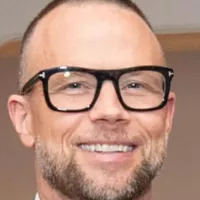
10 months ago Pat Kelsey: Naismith Coach of the Year Semifinalist after Louisville's Turnaround; ACC Semifinal Post-Game
Popular

Stranger Things created by the Duffer Brothers is a popular...

XXXTentacion born Jahseh Dwayne Ricardo Onfroy was a controversial yet...
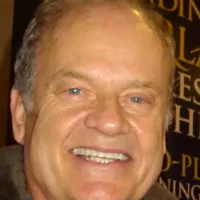
Kelsey Grammer is an accomplished American actor producer and singer...

Candace Owens is an American conservative political commentator and author...

Bernie Sanders is a prominent American politician currently serving as...

Melania Trump a Slovenian-American former model has served as First...